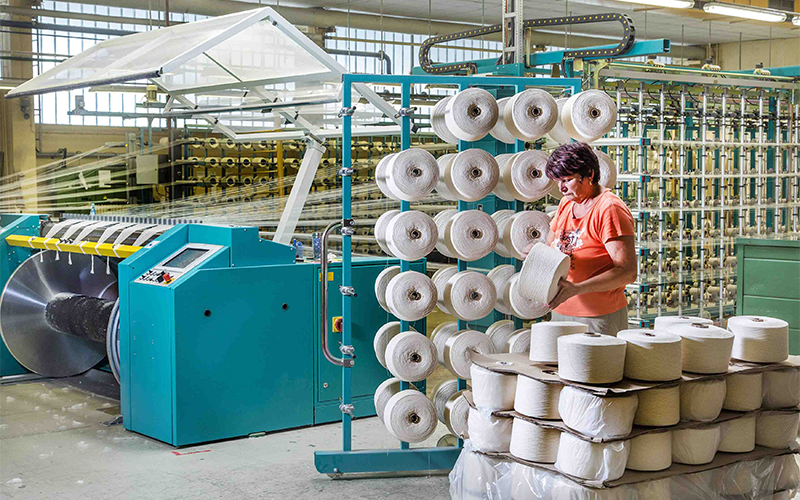
Historical textile factory gears up for e-commerce
frottana Textil GmbH & Co. KG, based in Großschönau (Saxony), is a historically significant company in the textile industry. The production of terry toweling products began with the commissioning of the first terry loom in the middle of the 19th century, and continues to this day.
The site has developed greatly since that time. The company faces demanding challenges, especially due to increasing globalization, the resulting rise in competition, and the increasing networking of companies. E-commerce has seen uninterrupted growth, and this will continue. It can be assumed that the “e-commerce versus retail” substitution effect will continue to progress steadily over the next few years and will have a considerable impact on in-store retail.
A future shift in market shares can also be expected. This development has a major impact on available space, processes, and organization. In order to maintain a service logistics concept that continues to meet the needs of the end customer, and to be able to provide the required material at the agreed service level, logistics must be strategically developed.
LOGSOL has been supporting frottana Textil GmbH & Co. KG since March 2021. Comprehensive data analysis formed the basis for the Logistics 2025 Master Plan, with the LOGSOL project team analyzing processes, material flow, and warehouse data, among other things. Based on inventory data, the company’s future direction was forecast and then, in cooperation with the customer, required actions were identified in various logistical areas. These were divided into short, medium, and long-term implementations.
The focus was on two areas that are steadily increasing in influence due to the upswing in e-commerce: In returns processing, ACTUAL processes were analyzed and TARGET processes defined based on identified weaknesses. The coordinated TARGET processes will be supported in future by IT software synchronized with the processes. A guided returns process facilitates step-by-step recording of complaint reasons and evaluations, as well as the initiation of exchange or replacement, including the generation of credit notes.
In the shipping department, we focused primarily on processes as well as different (partial) automation variants, which were investigated, planned and evaluated. With B2B shipping on the rise, LOGSOL planned an automated packing line for online customers.
Finally, LOGSOL’s team of experts examined the organizational concept and drew up a proposal for its future orientation. Further projects to optimize production together with LOGSOL are also scheduled for next year.